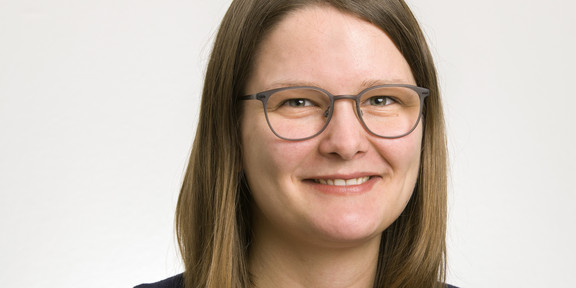How the Corona pandemic affects private support for elders
- News
- Fakultät

The team in the Department of Social Structure and Sociology of Aging Societies at the Faculty of Social Sciences at TU Dortmund University has investigated how the Corona pandemic affects support networks, health and well-being among people between 40 and 90 years of age. Using a quantitative survey, the researchers found that the pandemic made caregiving more difficult. For example, elders and the very old in particular have withdrawn from providing support to others. Selected results of the pilot study have recently been published in the Journal of Gerontology and Geriatrics.
The Corona pandemic and associated containment measures have brought numerous very sudden changes in many areas of life, such as the reduction of social contacts. "This has increased the risk of loneliness and a generally reduced sense of well-being," explains Judith Kaschowitz, a research associate in the Sociology of Aging Societies and co-author of the study.
Care work more difficult
The results show that the Corona pandemic has multiple negative effects on middle-aged and older individuals. For example, many respondents report more loneliness and lower life satisfaction than before the pandemic. In addition, a considerable proportion of respondents can no longer provide needed support for others, such as relatives in need of care, or, conversely, no longer receive needed support from others. There is a connection between these findings: respondents who report care problems with relatives are more likely to say they are lonely. Women are more affected overall: they more often reported caregiving difficulties with relatives. For them, as well as for the very old, well-being decreased the most.
"Our study showed significant changes in support patterns and well-being among respondents. The pandemic and the measures to contain it have made caring for others much more difficult. Future measures should keep this in mind and use contact restrictions wisely," Judith Kaschowitz sums up.
More than 450 people surveyed
In order to find out how support patterns have changed in the course of the pandemic, what care problems have arisen and what impact this has had on people's well-being, the project team led by Prof. Martina Brandt conducted a quantitative survey online and by telephone between May and July last year, in which more than 450 people over the age of 40 took part. Prof. Monika Reichert's team from the Faculty of Social Sciences at TU Dortmund University also conducted guided interviews on the consequences of the pandemic for older people and the resulting support needs. For this purpose, they spoke with experts from the fields of health and geriatric policy in science and practice.
The pilot study, recently published in the Journal of Gerontology and Geriatrics, aims to help highlight challenges posed by the Corona pandemic, particularly in terms of social support and health. It also aims to highlight unanswered questions that need to be explored in more depth in future representative studies. Initial plans are already underway in the area of social structure and sociology of aging societies.
Further information:
Study: Changes in well-being and private support for older people: a closer look at the impact of the COVID19 pandemic in early summer 2020Changes in well-being and private support for older people: a closer look at the impact of the COVID19 pandemic in early summer 2020 (in German language with abstract in English)
Contact person for queries




